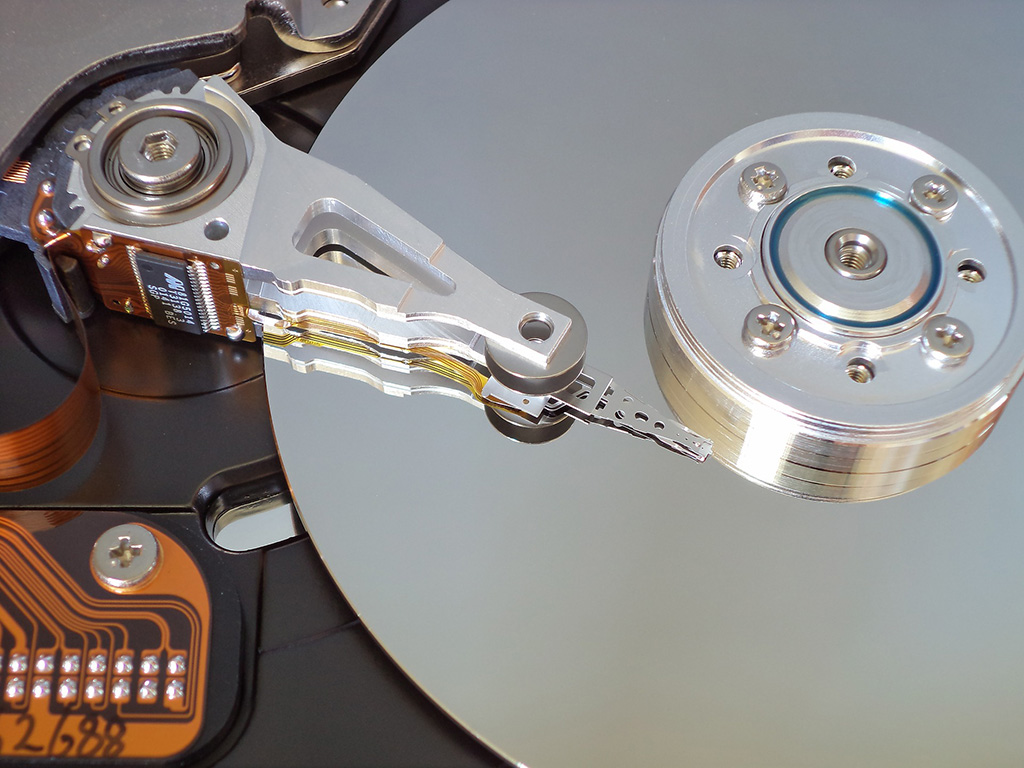Glass is key to raising hard drive capacity ceiling to 20TB and beyond
Your next hard drive might be made of glass.

Hard drives are no longer the primary storage medium in many PCs, as the market has transitioned to faster solid state drives over the past several years. Even so, there is still a market for good old fashioned mechanical storage. That market has kept companies such as Western Digital and Seagate pushing capacities to new heights, which in turn has created a need for new ways of constructing HDDs. Enter Hoya, which believes that glass will play a critical role in pushing HDD capacities to 20TB and beyond, Nikkei Technology reports.
You may have heard of Hoya before, especially if you're a photographer. The company is famous for making high quality filters for camera lenses. But it also supplies glass substrates for HDDs.
That's right—many of today's delicate HDDs are made of glass. More specifically, glass substrates are mostly used in slim 2.5-inch HDDs designed for laptops and other mobile devices. That market is increasingly limited, however, as many laptop makers have turned to SSD storage.
Hoya is not phased by the transition because it expects glass substrates to be a necessary upgrade for 3.5-inch HDDs, which currently use aluminum substrates. One of the advantages of switching to glass is that it's more rigid than aluminum. Glass substrates are also smoother and flatter, all of which makes it possible to cram more drives together. To that end, Hoya has already prototyped glass substrates measuring 0.5mm and 0.381mm thick. At those sizes, drive makers can cram up to a dozen substrates in a single 3.5-inch HDD.
There are other advantages, too. Glass expands less than aluminum when heated up, making it far more heat resistant. Heat assisted magnetic recording (HAMR) technology, which is expected to be mainstream in the future as 20TB capacity HDDs and beyond come into view, requires a substrate with a heat resistance of around 700C. The heat resistance of today's aluminum substrates falls way short at around 200C.
Hoya's confidence in glass substrates being the new norm is not unfounded, barring some kind of other development in HDD storage. That's because the reason HDDs are still relevant is because they offer higher capacities at lower price points (per gigabyte) compared to SSDs. Drive makers have to keep pushing capacities, and switching to glass substrates currently looks like the best way to do that.
This will happen sooner than later, too. Toshiba, which currently offers an 8TB drive as its largest capacity HDD, is said to be working on a 14TB helium-filled HDD. Meanwhile, Seagate has already put a 20TB hard drive on its roadmap with an expected 2020 release.
The biggest gaming news, reviews and hardware deals
Keep up to date with the most important stories and the best deals, as picked by the PC Gamer team.
Paul has been playing PC games and raking his knuckles on computer hardware since the Commodore 64. He does not have any tattoos, but thinks it would be cool to get one that reads LOAD"*",8,1. In his off time, he rides motorcycles and wrestles alligators (only one of those is true).


